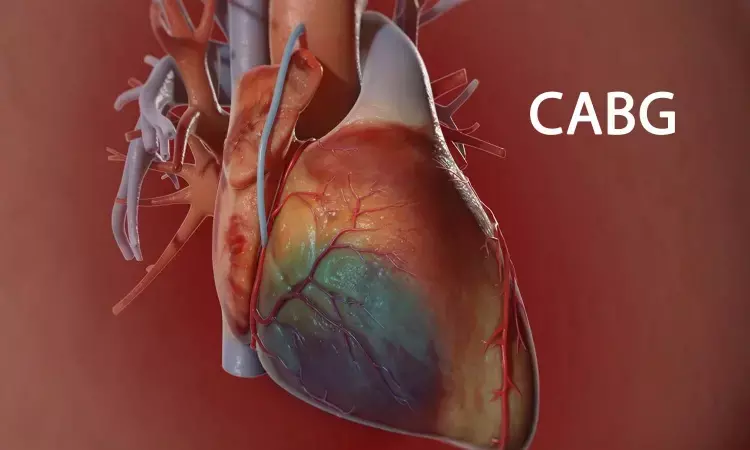- Home
- Medical news & Guidelines
- Anesthesiology
- Cardiology and CTVS
- Critical Care
- Dentistry
- Dermatology
- Diabetes and Endocrinology
- ENT
- Gastroenterology
- Medicine
- Nephrology
- Neurology
- Obstretics-Gynaecology
- Oncology
- Ophthalmology
- Orthopaedics
- Pediatrics-Neonatology
- Psychiatry
- Pulmonology
- Radiology
- Surgery
- Urology
- Laboratory Medicine
- Diet
- Nursing
- Paramedical
- Physiotherapy
- Health news
- Fact Check
- Bone Health Fact Check
- Brain Health Fact Check
- Cancer Related Fact Check
- Child Care Fact Check
- Dental and oral health fact check
- Diabetes and metabolic health fact check
- Diet and Nutrition Fact Check
- Eye and ENT Care Fact Check
- Fitness fact check
- Gut health fact check
- Heart health fact check
- Kidney health fact check
- Medical education fact check
- Men's health fact check
- Respiratory fact check
- Skin and hair care fact check
- Vaccine and Immunization fact check
- Women's health fact check
- AYUSH
- State News
- Andaman and Nicobar Islands
- Andhra Pradesh
- Arunachal Pradesh
- Assam
- Bihar
- Chandigarh
- Chattisgarh
- Dadra and Nagar Haveli
- Daman and Diu
- Delhi
- Goa
- Gujarat
- Haryana
- Himachal Pradesh
- Jammu & Kashmir
- Jharkhand
- Karnataka
- Kerala
- Ladakh
- Lakshadweep
- Madhya Pradesh
- Maharashtra
- Manipur
- Meghalaya
- Mizoram
- Nagaland
- Odisha
- Puducherry
- Punjab
- Rajasthan
- Sikkim
- Tamil Nadu
- Telangana
- Tripura
- Uttar Pradesh
- Uttrakhand
- West Bengal
- Medical Education
- Industry
Pedicled better than skeletonized technique for mammary artery grafting in CABG surgery: JAMA

Canada: Harvesting of the internal mammary artery during CABG surgery using a pedicled technique improved outcomes at 1 to 2 years compared with the skeletonized technique, show findings from post hoc analysis of the COMPASS trial.
According to the study, published in the journal JAMA Cardiology, the use of the skeletonized technique led to a higher rate of graft occlusion and worst clinical outcomes.
Multiple arterial grafting (MAG) has been shown to provide a survival advantage in patients undergoing coronary artery bypass grafting (CABG) versus the revascularization strategies involving a left internal mammary artery (LIMA) to the LAD and saphenous vein grafts for the remaining targets, especially in a patient population whose life expectancy is greater than 10 years. When two internal mammary arteries (IMAs) are utilized rather than a LIMA along with a radial graft, the benefits of MAG appear to be more pronounced. Despite this, many surgeons refuse to use IMA grafts owing to the fear of sternal wound-healing complications, which have been clearly described especially in obese, diabetic, and female patients.
In cases where a skeletonized technique is employed for IMA harvesting, the wound-healing appears to be partially mitigated. The decreased tissue damage on the inner surface of the sternum achieved with the skeletonized technique has been proposed as the mode of "protection" of the devascularized sternum.
Against the above background, André Lamy, Hamilton Health Sciences, Hamilton, Ontario, Canada, and colleagues aimed to investigate the association of skeletonized vs pedicled harvesting with internal mammary artery graft patency and clinical outcomes 1 year after CABG surgery.
The researchers conducted the COMPASS clinical trial -- a multicenter, randomized, double-blind, placebo-controlled Cardiovascular Outcomes for People Using Anticoagulation Strategies clinical trial. The trial enrolled 27 395 patients from 602 centers in 33 countries from March 2013 through May 2016. The trial included patients who had undergoing CABG surgery for coronary artery disease with at least 2 grafts implanted and an estimated glomerular filtration rate of at least 30 mL/min.
A total of 1002 of 1448 patients were randomized to the CABG arm of the COMPASS trial and underwent skeletonized (282 [28.1%]) or pedicled (720 [71.9%]) internal mammary artery harvesting. The patients had evaluable angiography results 1 year after surgery.
The primary outcome was graft occlusion 1 year after CABG surgery, as assessed by computed tomography angiography.
Key findings of the study include:
- Rates of internal mammary artery graft occlusion 1 year after CABG surgery were higher in the skeletonized group than in the pedicled group (9.6% vs 3.9%; graft-level adjusted odds ratio, 2.41), including the left internal mammary artery to left anterior descending artery (7.3% vs 3.4%; graft-level adjusted odds ratio, 2.10).
- After a mean follow-up of 23 months, skeletonized graft harvesting was also associated with a higher rate of major adverse cardiovascular events (7.1% vs 2.1%; adjusted hazard ratio, 3.19) and repeated revascularization (5.0% vs 1.4%; adjusted hazard ratio, 2.75).
"This post hoc analysis of the COMPASS randomized clinical trial found that harvesting of the internal mammary artery during CABG surgery using a skeletonized technique was associated with a higher rate of graft occlusion and worse clinical outcomes than the traditional pedicled technique," concluded the authors. "Future randomized clinical trials are needed to establish the safety and patency of the skeletonized technique."
Reference:
The study titled, "Skeletonized vs Pedicled Internal Mammary Artery Graft Harvesting in Coronary Artery Bypass Surgery: A Post Hoc Analysis From the COMPASS Trial," is published in the journal JAMA Cardiology.
DOI: https://jamanetwork.com/journals/jamacardiology/article-abstract/2780714
Dr Kamal Kant Kohli-MBBS, DTCD- a chest specialist with more than 30 years of practice and a flair for writing clinical articles, Dr Kamal Kant Kohli joined Medical Dialogues as a Chief Editor of Medical News. Besides writing articles, as an editor, he proofreads and verifies all the medical content published on Medical Dialogues including those coming from journals, studies,medical conferences,guidelines etc. Email: drkohli@medicaldialogues.in. Contact no. 011-43720751


